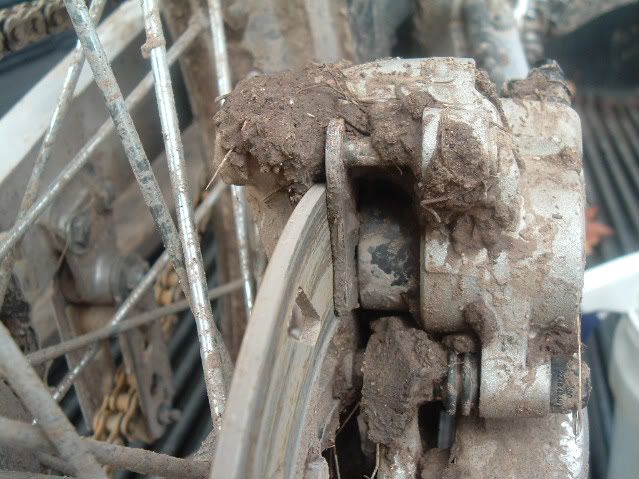The rear brake on my '08 DE300 is the worst. It requires lots of pedal pressure to get any stopping power, there's too much pedal travel and there's no way to lock the rear wheel. Up until recently, I've been on KTM's so this situation is doubly annoying.
A little background info: Fluid is fresh DOT 4. The system has been bled and back-bled several times - no air there (and never any debris in the fluid). No fluid leaks at the Master, at the caliper or at any of the attachment points for the hose. Rotor is smooth and clean, no grooves or pits. am using EBC sintered pads (have tried "roughing " the pads to remove any glaze).
The poor braking performance is consistent any time, under any conditions - wet or dry, hot or cold, whether at the beginning of a ride or after an hour or more of aggressive riding.
The wimpy rear brake is really a handicap and I need to get things working the way I like!
Who else has had this problem? And more important, what's the best place to start looking for a fix?
A little background info: Fluid is fresh DOT 4. The system has been bled and back-bled several times - no air there (and never any debris in the fluid). No fluid leaks at the Master, at the caliper or at any of the attachment points for the hose. Rotor is smooth and clean, no grooves or pits. am using EBC sintered pads (have tried "roughing " the pads to remove any glaze).
The poor braking performance is consistent any time, under any conditions - wet or dry, hot or cold, whether at the beginning of a ride or after an hour or more of aggressive riding.
The wimpy rear brake is really a handicap and I need to get things working the way I like!
Who else has had this problem? And more important, what's the best place to start looking for a fix?

